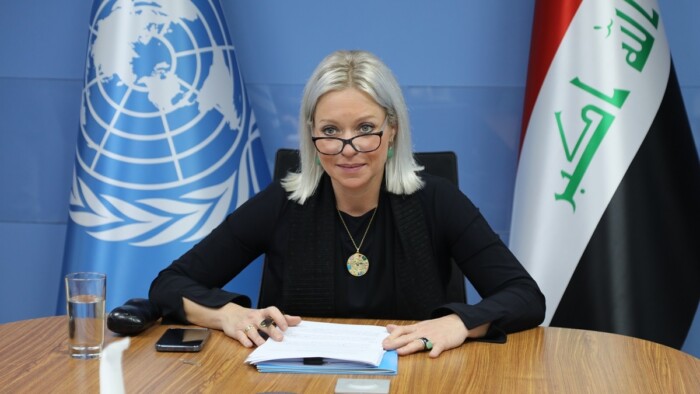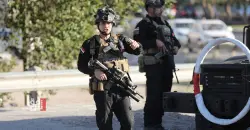Iraqi politician warns against terminating UNAMI

Shafaq News / Former Iraqi deputy, Mithal Al-Alusi, cautioned on Sunday about the dangers of terminating the United Nations mission in Iraq (UNAMI) in the near future.
Al-Alusi expressed concern that "the Coordination Framework Government, since its formation, seeks to monopolize everything in the government, including legislation in parliament, commercial and economic deals, and does not want any international oversight on any international mandate in Iraq, regardless of the success or failure of this mandate."
He emphasized, "The absence of the United Nations mission will significantly and dangerously increase the activities of armed groups and make Iraq an official hub for terrorism in the region, as well as a center for human rights violations and secret prisons in the region."
The Iraqi government has requested the United Nations to end its political mission in the country by the end of 2025, deeming it "no longer necessary given its significant progress towards stability," according to a message addressed to the UN Security Council.
In this context, legal expert Ali Al-Tamimi stated that ending the mission requires a decision from the Security Council, the approval of the majority, and no objection from any of the five permanent member states to the powers granted to the Security Council under the Charter from Article 39 to Article 52.
Al-Tamimi also attributed the reason for the request for a decision to the fact that the Security Council is the one that established it and extends its work every year, confirming its right to cancel, and the decision is not canceled except by a decision.
Moreover, he pointed out that "this organization has been operating since 2003, and the Security Council has the right to cancel it or replace its members or keep it, so the decision must be issued by the Security Council."
It is expected that the Head of the United Nations Mission in Iraq, Jeanine Hennis-Plasschaert, will present her final briefing to the United Nations Security Council on May 16th via video conference and then leave Iraq permanently, thereby concluding her mission that began in January 2018.
Some critics express "concern" about the stability of emerging democracy in Iraq due to the repeated conflicts in the country and the presence of many armed political groups. Also, some diplomats and UN officials express concern about human rights and accountability in a country classified as one of the most corrupt in the world.
In this regard, Prime Minister Mohammed Shia Al-Sudani spoke about the reasons for his request, referring to what he called the "positive developments and successes" of successive governments and the achievement of the United Nations Assistance Mission for Iraq (UNAMI) formed after 2003. He indicated that in these circumstances and "after 20 years of democratic transition and overcoming various challenges, the reasons for the existence of a political mission in Iraq are no longer valid."
UNAMI is a special political mission established in 2003 by Security Council Resolution 1500 at the request of the Iraqi government. Its role expanded significantly in 2007 under Resolution 1770.
At the start of its operations in Iraq, the mission's headquarters at Al-Kanat Hotel in Baghdad was subjected to a terrorist bombing in August 2003, leading to its destruction and the death of 23 staff members, including the Special Representative of the Secretary-General for the United Nations, Sergio Vieira de Mello, and injuring more than 100 others.





